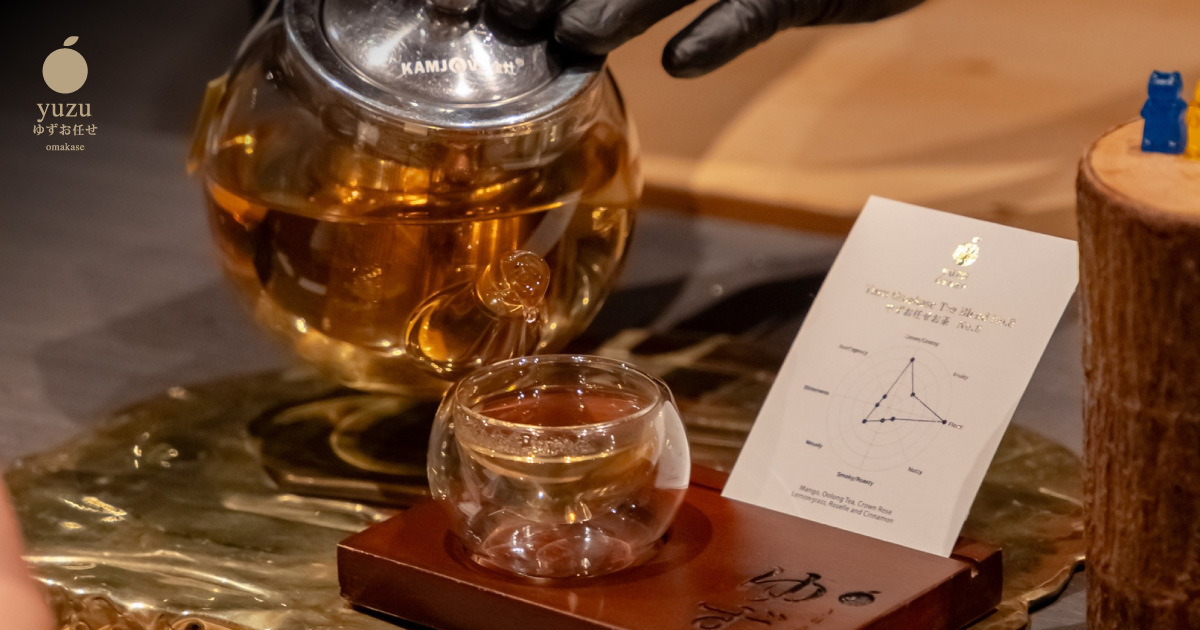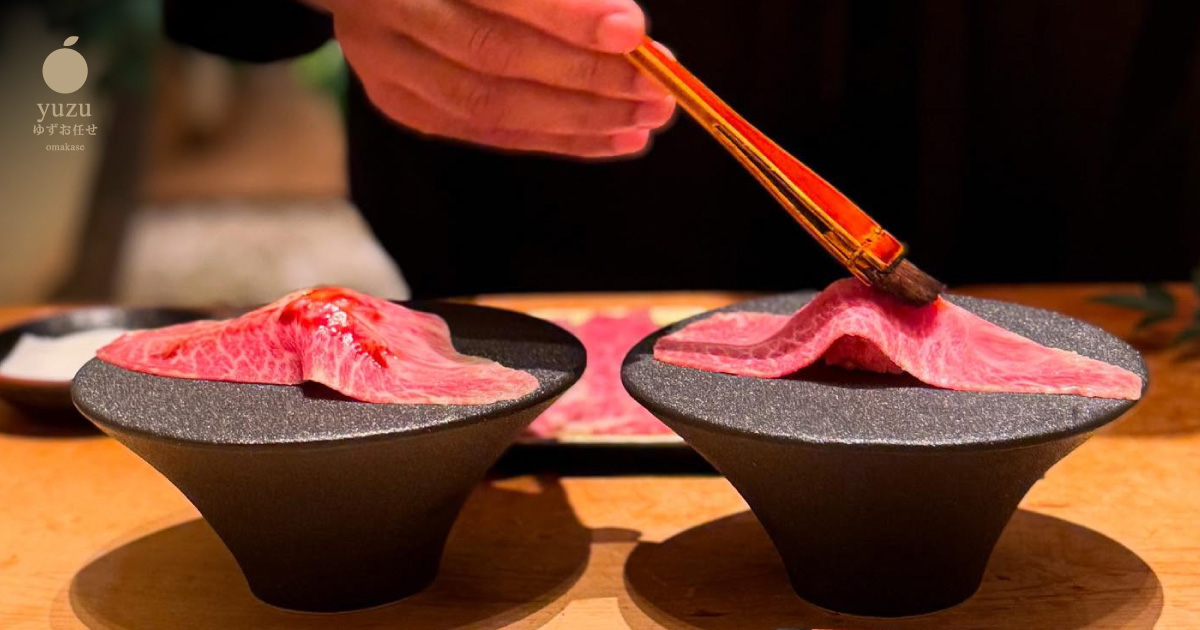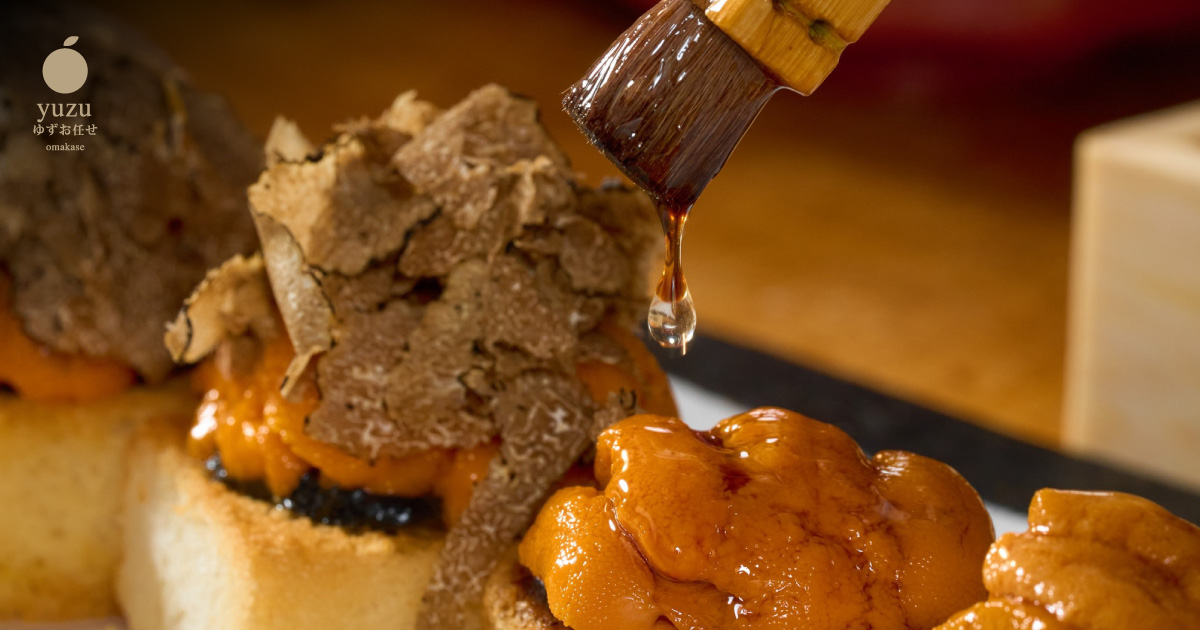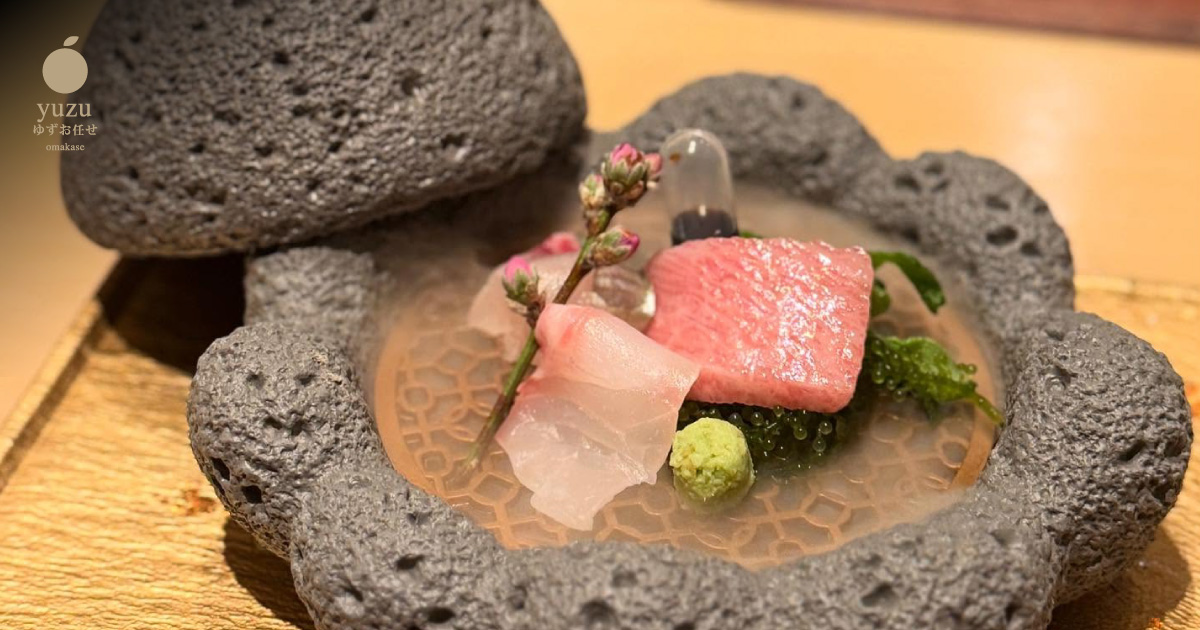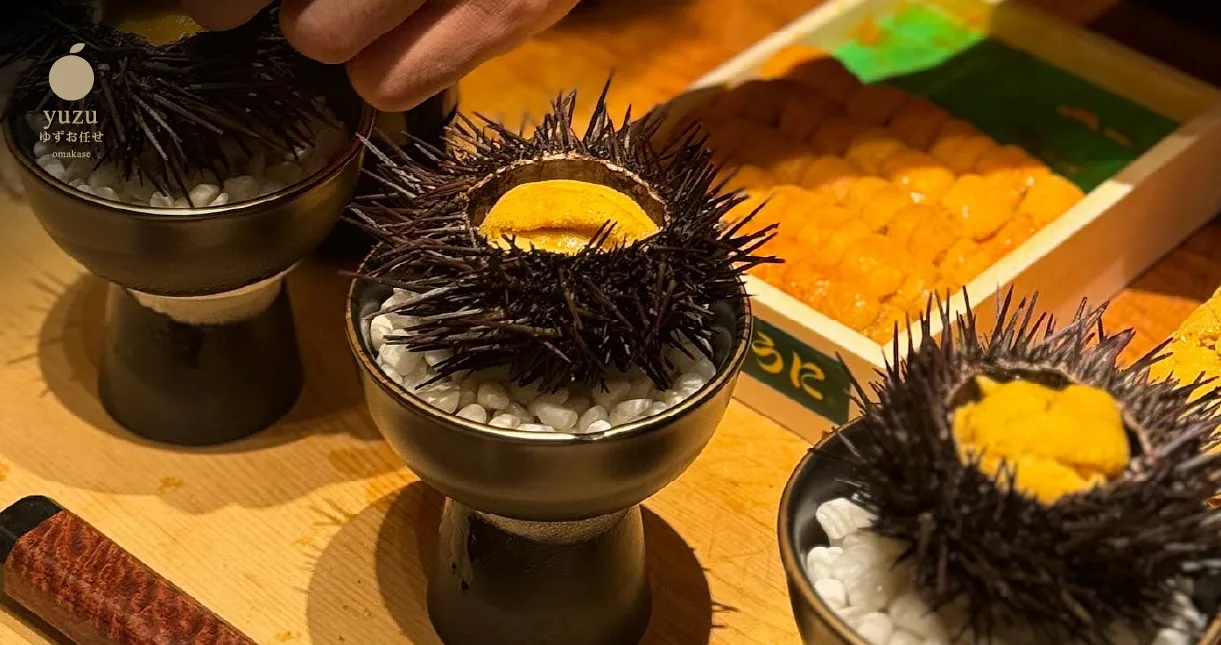
Sustainable Dining: Yuzu Omakase’s Eco-Friendly Practices
In an era where environmental consciousness is paramount, Yuzu Omakase stands as a beacon of sustainable dining in Bangkok. Located at 258/9-10 Siam Square Soi 3, 2F Pathumwan, Yuzu Omakase not only offers a culinary experience steeped in the rich traditions of Japanese cuisine but also champions eco-friendly practices that promote a healthier planet. This article delves into the various sustainable practices adopted by Yuzu Omakase, from sourcing ingredients responsibly to implementing effective waste management strategies.
Well-Being ● 2024 Jul 10
Sustainable Dining: Yuzu Omakase's Eco-Friendly Practices
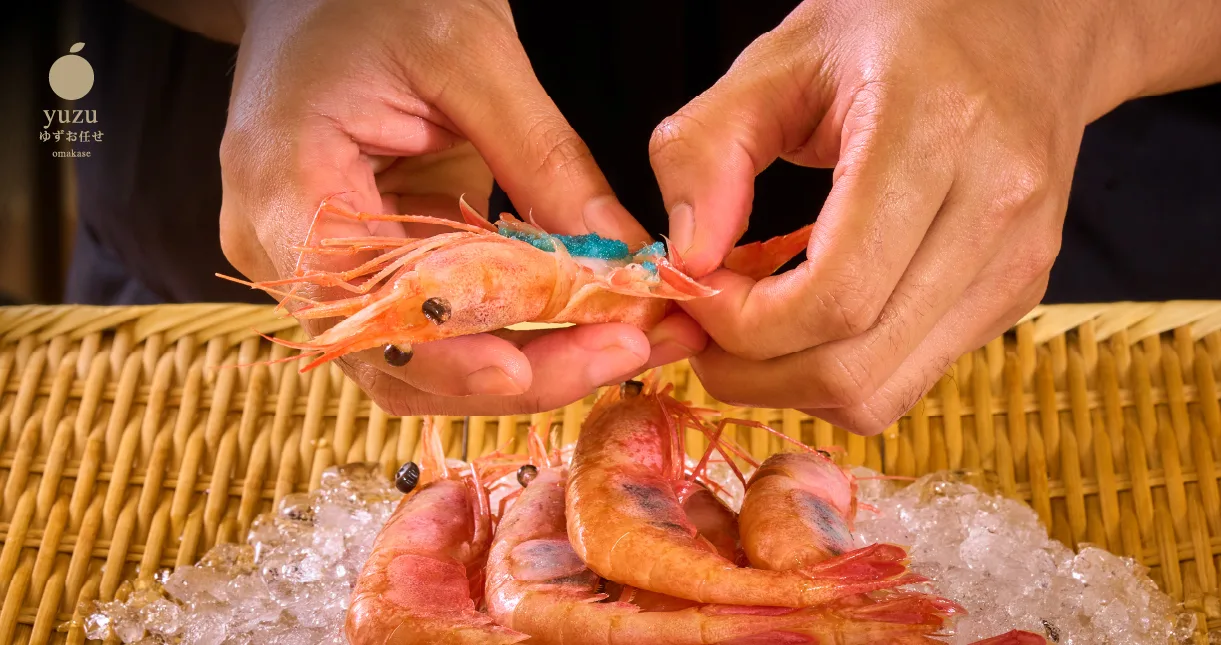
Commitment to Sustainable Sourcing
Yuzu Omakase is committed to sourcing ingredients that are both high-quality and environmentally friendly. This commitment starts with a meticulous selection process, ensuring that all seafood and produce meet stringent sustainability criteria.
Sustainable Seafood
At Yuzu Omakase, seafood is sourced from suppliers who adhere to sustainable fishing practices. This means prioritizing fish populations that are not overfished and choosing methods that minimize environmental impact. For instance, the restaurant sources its fish from fisheries certified by the Marine Stewardship Council (MSC), an organization that sets standards for sustainable fishing. By supporting these suppliers, Yuzu Omakase ensures that its seafood offerings do not contribute to the depletion of marine life.
Organic and Local Produce
In addition to sustainable seafood, Yuzu Omakase places a strong emphasis on using organic and locally sourced produce. Organic farming practices avoid the use of synthetic pesticides and fertilizers, which can be harmful to the environment. By partnering with local farmers who utilize these practices, the restaurant not only supports the local economy but also reduces its carbon footprint associated with long-distance transportation of ingredients.
Seasonal Ingredients
Utilizing seasonal ingredients is another key aspect of Yuzu Omakase's sustainable sourcing strategy. By designing its menu around the availability of seasonal produce, the restaurant minimizes the environmental impact associated with growing out-of-season crops. This practice also ensures that guests enjoy the freshest and most flavorful dishes possible.
Eco-Friendly Kitchen Practices
Beyond sourcing sustainable ingredients, Yuzu Omakase implements various eco-friendly practices within its kitchen to minimize its environmental impact.
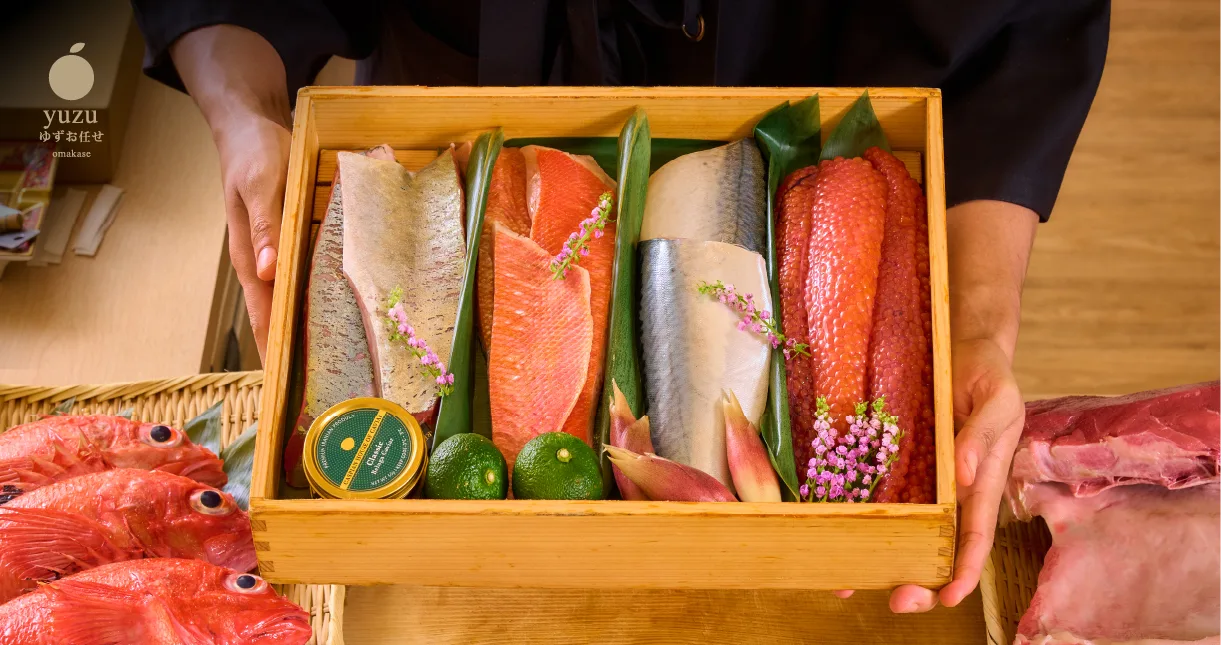
Energy-Efficient Appliances
The kitchen at Yuzu Omakase is equipped with energy-efficient appliances that reduce energy consumption. From induction cooktops to energy-star-rated refrigeration units, these appliances are chosen for their ability to perform efficiently while consuming less power. This not only helps in reducing the restaurant's carbon footprint but also cuts down on operational costs.
Water Conservation
Water conservation is another critical aspect of Yuzu Omakase's kitchen practices. The restaurant employs water-saving devices such as low-flow faucets and dishwashers that use less water per cycle. Additionally, staff are trained in water-efficient practices, such as using minimal water for cleaning and reusing water where appropriate.
Waste Reduction and Management
Effective waste management is a cornerstone of Yuzu Omakase's sustainability efforts. The restaurant has implemented a comprehensive waste reduction and recycling program to minimize its environmental impact.
Composting
Organic waste, such as food scraps and kitchen waste, is composted rather than sent to landfills. Composting not only reduces the volume of waste but also creates nutrient-rich compost that can be used to enrich soil in local farms and gardens. This practice closes the loop on food waste and contributes to a healthier ecosystem.
Recycling
Yuzu Omakase has a robust recycling program in place for materials such as glass, plastic, and cardboard. Staff are trained to sort and recycle waste correctly, ensuring that as much material as possible is diverted from landfills.
Reducing Single-Use Plastics
The restaurant has significantly reduced its use of single-use plastics by opting for reusable or biodegradable alternatives. For instance, bamboo and paper straws replace plastic ones, and takeout containers are made from compostable materials. This reduction in plastic waste is a crucial step in mitigating the environmental damage caused by plastic pollution.
Sustainable Dining Experience
Yuzu Omakase extends its commitment to sustainability beyond the kitchen, ensuring that guests can enjoy an eco-friendly dining experience.
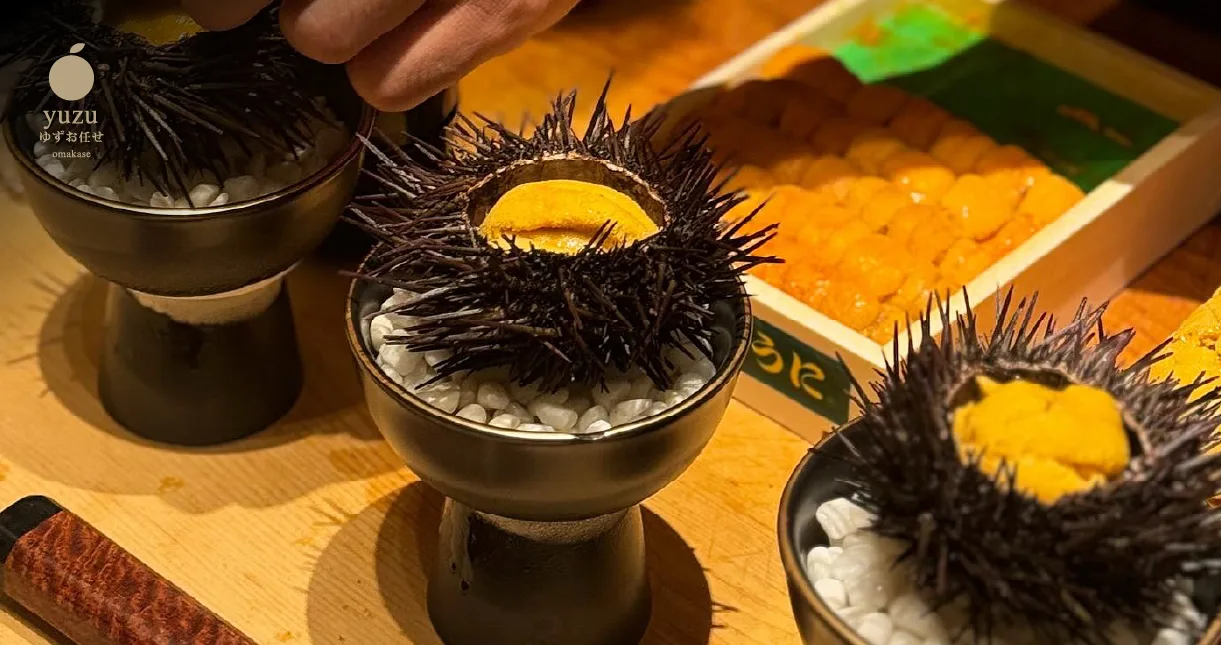
Eco-Friendly Dining Ware
The restaurant uses dining ware made from sustainable materials, such as bamboo and recycled glass. These materials are not only environmentally friendly but also add a unique aesthetic to the dining experience. Bamboo chopsticks, for example, are both biodegradable and elegant, enhancing the overall ambiance of the meal.
Green Interior Design
Yuzu Omakase's interior design reflects its commitment to sustainability. The restaurant features eco-friendly design elements such as reclaimed wood furniture, energy-efficient lighting, and natural decor. These elements create a warm and inviting atmosphere while minimizing environmental impact.
Educational Initiatives
Yuzu Omakase believes in the power of education to foster sustainable practices. The restaurant regularly hosts events and workshops focused on sustainability, such as cooking classes that emphasize the use of sustainable ingredients and waste reduction techniques. By educating guests and the community, Yuzu Omakase aims to inspire others to adopt eco-friendly practices in their own lives.
Supporting Local Communities
Sustainability at Yuzu Omakase goes hand in hand with supporting local communities. The restaurant actively collaborates with local farmers, fishermen, and artisans to source ingredients and products. This not only ensures the freshest and most sustainable ingredients but also contributes to the economic well-being of the community.
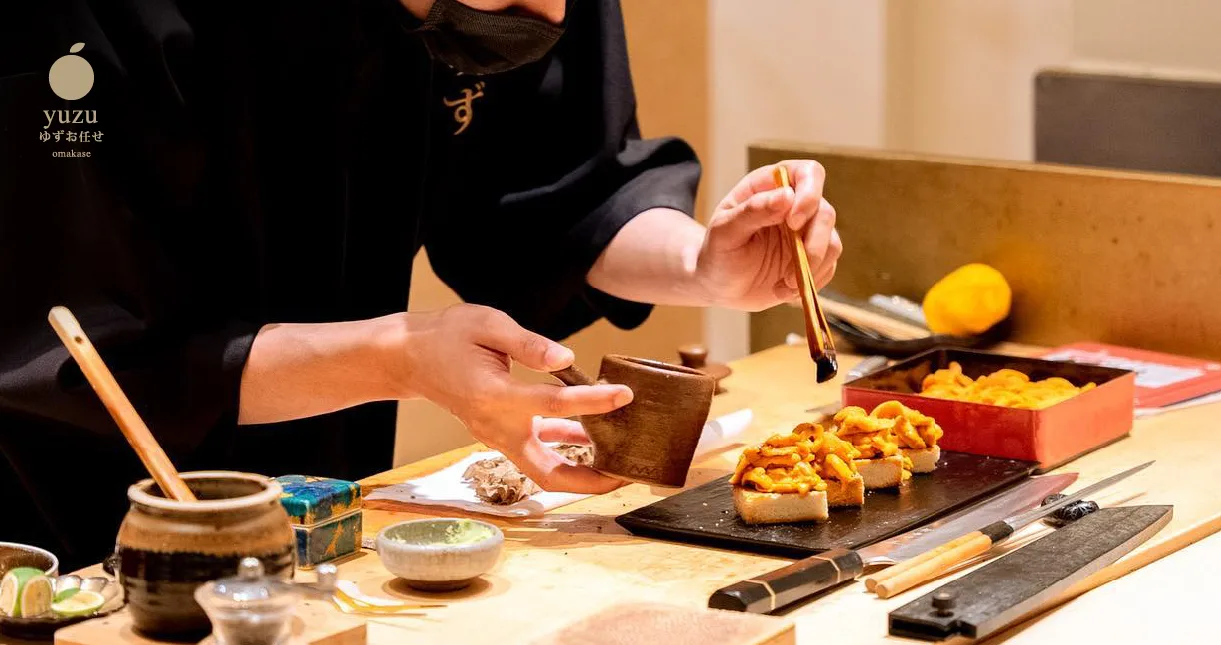
Fair Trade Practices
Yuzu Omakase is committed to fair trade practices, ensuring that suppliers are paid fair wages and work under ethical conditions. This commitment to ethical sourcing helps to build stronger, more resilient communities and promotes social sustainability.
Community Engagement
The restaurant engages with the local community through various initiatives, such as participating in local farmers' markets and community events. These engagements foster a sense of community and promote a culture of sustainability.
Global Perspectives on Sustainable Dining
Japan's Sustainable Cuisine
In Japan, sustainable dining is deeply rooted in traditional practices that emphasize respect for nature and minimal waste. Kaiseki, a traditional multi-course Japanese meal, often utilizes seasonal and locally sourced ingredients. This not only ensures freshness but also supports local farmers and reduces the carbon footprint associated with transportation.
Japanese chefs are also known for their nose-to-tail approach to cooking, where every part of the animal is used to minimize waste. This practice aligns with the principles of sustainability and showcases the culinary creativity of Japanese cuisine.
Global Trends in Sustainable Dining
Around the world, restaurants are increasingly adopting sustainable practices to meet the growing demand for eco-friendly dining options. The farm-to-table movement, which emphasizes sourcing ingredients directly from local farms, has gained popularity in many countries. This approach supports local agriculture and reduces the environmental impact of transporting food over long distances.
In Scandinavia, the New Nordic Cuisine movement has made sustainability a core principle. Restaurants like Noma in Copenhagen prioritize the use of local, seasonal, and foraged ingredients, and have set a global standard for sustainable dining.
Innovations in Sustainable Practices
Innovation plays a crucial role in advancing sustainable dining practices globally. For example, some restaurants are experimenting with aquaponics, a system that combines aquaculture (raising fish) and hydroponics (growing plants in water). This closed-loop system allows for efficient resource use and minimal waste.
Another innovation is the use of food waste to create new products. In the United States, companies like ReGrained are transforming spent grains from breweries into nutritious snacks, demonstrating how food waste can be repurposed creatively and sustainably.
Future Goals and Initiatives
Yuzu Omakase is continuously striving to enhance its sustainability practices. The restaurant has set ambitious goals for the future to further reduce its environmental impact and promote sustainability.
Zero Waste Initiative
One of the long-term goals of Yuzu Omakase is to achieve zero waste. This involves continually improving waste management practices, reducing waste generation, and finding innovative ways to repurpose or recycle waste. The restaurant is exploring partnerships with waste management companies to develop advanced recycling and composting solutions.
Sustainable Packaging
Yuzu Omakase is working towards using 100% sustainable packaging for all its products. This includes eliminating plastic packaging and switching to biodegradable or recyclable alternatives. The restaurant is also exploring options for reusable packaging, such as a returnable container program for takeout orders.
Renewable Energy
Investing in renewable energy sources is another goal for Yuzu Omakase. The restaurant is exploring the feasibility of installing solar panels and other renewable energy systems to power its operations. By transitioning to renewable energy, Yuzu Omakase aims to further reduce its carbon footprint and contribute to a cleaner environment.
Continuous Improvement and Innovation
Sustainability is an ongoing journey, and Yuzu Omakase is committed to continuous improvement and innovation. The restaurant regularly reviews its practices and seeks new ways to enhance its sustainability efforts. This includes staying updated on the latest sustainability trends and technologies and being open to adopting new methods that align with its commitment to environmental stewardship.
Conclusion
Yuzu Omakase's dedication to sustainable dining is evident in every aspect of its operations. From sourcing ingredients responsibly to implementing eco-friendly kitchen practices and reducing waste, the restaurant is a leader in promoting a healthier planet. Guests at Yuzu Omakase can enjoy an exceptional dining experience, knowing that their meal supports sustainable practices and contributes to a better future. As the restaurant continues to innovate and set higher standards for sustainability, it serves as an inspiring model for others in the industry. By choosing to dine at Yuzu Omakase, patrons are not only treated to exquisite Japanese cuisine but also participate in a collective effort to promote environmental sustainability.

RELATE
-
Stress Reduction Techniques Through Culinary Ritual: Dining as Meditation
When the outside world feels overwhelming, we search for stillness. For many, that stillness is found not in silence—but in sushi. At Yuzu Omakase Thailand, each course is a quiet ritual, and each bite is a breath in mindfulness.
Well-Being ● 2025 Sep 29
-
How Yuzu Omakase Thailand Promotes Longevity Through Clean Cuisine
In the pursuit of longevity, diet is more than nutrition—it is culture, ritual, and philosophy. At Yuzu Omakase Thailand, every course reflects the time-honored practices of Japanese culinary wisdom, designed to support vitality, balance, and a long, healthy life.
Well-Being ● 2025 Sep 12
-
Healthy Aging Through Japanese Cuisine: Why Yuzu Is More Than Just a Meal
Long life isn’t just about how many years you live—but how well you live them. At Yuzu Omakase Thailand, age-defying nourishment meets Japanese tradition in a dining experience that supports longevity from the inside out.
Well-Being ● 2025 Sep 9



